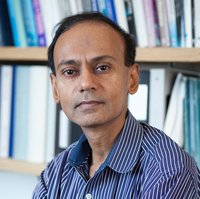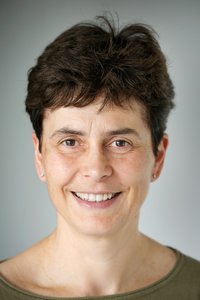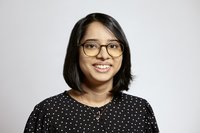The CWI Lectures 2025 are dedicated to secure computation. This event serves as a prominent forum for cutting-edge talks and in-depth discussions, bringing together top researchers from around the world, exploring foundational and emerging approaches to secure computation in the data-driven era.
In an era defined by massive data generation and digitalization, security and privacy in computation have become more vital than ever. As society becomes more reliant on data-driven technologies, a key question emerges:
How can we extract valuable insights from vast volumes of data without compromising sensitive or confidential information?
This year’s lectures will address this challenge from multiple angles. Leading experts will delve into topics including data privacy, hardware-enhanced mechanisms, secure multi-party computation, formal methods, and database security.
Attendees can look forward to engaging presentations that not only highlight current challenges but also propose innovative solutions and future directions for secure computation research. The lineup includes distinguished speakers from MIT, KU Leuven, ETH Zurich, and prominent Dutch universities, ensuring a diverse and international perspective.
Whether you are a researcher, practitioner, or student, the CWI Lectures offer a unique opportunity to gain deep insights into one of the most pressing technological issues of our time. We invite you to join us in Amsterdam on 20 November 2025 for a day of knowledge exchange, inspiration, and networking at the forefront of secure computation.
CWI Lectures on Secure Computation
In 2025, the CWI Lectures are dedicated to the future of secure computation. How we can harness data while protecting privacy and confidentiality? The programme features distinguished speakers from MIT, ETH Zurich, KU Leuven and Dutch Universities. Participation is free after registration.
Registration:
Participation is free of charge, but registration is required.
Update 19 November: registration is closed.
Speakers and topics

Bio: Srini Devadas is the Webster Professor of EECS at the Massachusetts Institute of Technology, where he has been on the faculty since 1988. Devadas's current research interests are in computer architecture, computer security, and applied cryptography. In 2021, he received the IEEE Cybersecurity Award for Practice, and the ACM SIGSAC Award for Outstanding Innovation for his work on secure hardware. Devadas is a MacVicar Faculty Fellow and an Everett Moore Baker teaching award recipient, considered MIT's two highest undergraduate teaching honours.
Abstract: We propose and study a new privacy definition, termed Probably Approximately Correct (PAC) Privacy. PAC Privacy characterizes the information-theoretic hardness to recover sensitive data given arbitrary information disclosure or- leakage during/after any processing. Unlike the classic cryptographic definition and Differential Privacy (DP), which consider the adversarial (input-independent) worst case, PAC Privacy is a simulatable metric that quantifies the instance-based impossibility of inference. A fully automatic analysis and proof generation framework is proposed: security parameters can be produced with arbitrarily high confidence via Monte-Carlo simulation for any black-box data processing oracle. We discuss applications of PAC Privacy to statistical data processing, machine learning, and database analytics.
Joint work with Hanshen Xiao and Mayuri Sridhar.

Bio: Ingrid Verbauwhede’s main expertise includes system and architecture design, embedded system, ASIC and FPGA design and design methodologies for real-time, low power embedded systems and more specifically embedded security systems.
She has experience in interdisciplinary research linking design for security with novel technologies and circuits, and investigating the requirements of novel cryptographic algorithms and software security requirements on secure hardware and HW/SW co-design.
Her ability to cross the gap between algorithm and protocol development and actual implementation in hardware, software and embedded systems has been widely recognized. Ingrid Verbauwhede has experience in running small and large research projects, fundamental ones (sponsored by NSF or FWO), basic research (funded by EU) and applied (in collaboration with industrial partners). Ingrid Verbauwhede is a fellow of IEEE and a member of the Royal Academy of Belgium for Sciences and Arts. In 2016 she received an advanced ERC grant and in 2017 a IEEE Computer Society Technical Achievement Award for pioneering contributions to design methodologies for tamper-resistant and secure electronic systems.
In 2021, she received a second ERC grant to work on hardware acceleration for computing on encrypted data.
In 2023, Professor Verbauwhede received the IEEE Donald O. Pederson Solid-State Circuits Award “for pioneering contributions to energy-efficient and high-performance secure integrated circuits and systems”.
In 2025, Ingrid Verbauwhede received the FWO Excellence Prize Dr. A. De Leeuw-Damry-Bourlart in Applied Sciences. Awarded every five years by an international jury, the FWO Excellence Prizes are often referred to as the “Flemish Nobel Prizes”. Prof. Verbauwhede was recognized for her pioneering work in hardware and semiconductor security, a research area that is becoming increasingly crucial in today’s digital and interconnected world. The prize includes a monetary award of €100,000.
Abstract: TBA

Bio: Shweta Shinde is a tenure-track assistant professor at ETH Zurich, where she leads the Secure and Trustworthy Systems Group. Her research is broadly at the intersection of trusted computing and system security. Her group focuses on foundational aspects of confidential computing to protect phones, servers, and accelerators as well as practical aspects of building large systems.
Abstract: Trusted execution environments (TEEs) have long promised stronger hardware-based security boundaries, e.g., to protect cloud computation from the cloud provider. But over the past decade, they have coalesced into something broader and more impactful: Confidential Computing. In 2015, Intel SGX marked a seminal moment—ushering in new hardware security primitives—and, perhaps not coincidentally, the very term "Confidential Computing" emerged the same year. Now, in 2025, Confidential Computing has entered the mainstream. It is supported across all major ISAs, championed by hardware vendors, integrated into cloud service offerings, and embedded in an expanding set of real-world applications. As we increasingly rely on large-scale, cloud-based infrastructures for security-sensitive workloads, Confidential Computing stands at the center of this shift.
This talk will take a reflective and systems-oriented view of the evolution of Confidential Computing: from the early abstractions of process-level enclaves to confidential virtual machines, and now to confidential accelerators. With each step, the security model, trust boundaries, and threat landscape have shifted—sometimes in subtle but profound ways. Drawing from a decade of both offensive and defensive research, this talk will explore not only how we got here, but also the missteps, lessons, and enduring challenges that remain.
At this critical juncture, the goal is to distill insights that can help the research community chart the next decade of Confidential Computing—responsibly, rigorously, and with a deep appreciation for the hard-earned lessons of the past.
Local speakers from Dutch universities & Panelists; bio & topics
Bio: Lilika Markatou is an assistant professor of cybersecurity at TU Delft. She works in applied cryptography and privacy, focusing on secure multiparty computation and encrypted databases. She holds a PhD in Computer Science from Brown University and SB/MEng degrees in EECS from MIT. https://markatou.github.io/
Klaus v. Gleissenthall is an assistant professor at Vrije Universiteit Amsterdam. Before joining VU Amsterdam in 2020, Klaus was a post-doctoral researcher at the University of California, San Diego. He received his PhD with distinction summa cum laude from the Technical University of Munich. His work has been recognized with distinguished paper awards at POPL, OOPSLA, CCS, honorable mentions at the Intel hardware security award, and an ERC Starting Grant.
Bio: Divya Ravi is currently an Assistant Professor at the University of Amsterdam. Prior to this, she did her postdoc at Aarhus University and received her PhD from Indian Institute of Science. Her research interests include Secure Multi-Party Computation and distributed computing.
Homepage: https://sites.google.com/site/divyaraviiisc/home
Abstract: The talk will mostly be about this paper published in CCS' 2025 https://eprint.iacr.org/2025/052.pdf and also include a broader overview of research in this area.
Bio: Andrea Continella is an Associate Professor at the University of Twente, where he leads the cybersecurity team of the Semantics, Cybersecurity & Services group (SCS), and he is a member of the International Secure Systems Lab (iSecLab). His research activity focuses on several aspects of systems security, such as malware and threat analysis, mobile and IoT security, software and firmware security, and large-scale measurements of security issues. Andrea is a strong advocate for open and reproducible science, he regularly publishes at top-tier security venues, and he serves on the program committees of major systems security conferences.
Website: https://conand.me/
Abstract: Embedded devices have become ubiquitous, streamlining daily life, industrial operations, and even critical infrastructures. However, these devices and their surrounding ecosystems continue to exhibit severe (despite well-known) vulnerabilities that pose serious security risks. In this talk, I will examine the challenges of applying traditional security analysis methods to embedded systems and discuss the inherent fragility of their security. I will then present the findings of our recent work on IoT security and conclude by outlining directions for future research.
Bio: Cristiano Giuffrida is a Full Professor in the Computer Science Department at the Vrije Universiteit Amsterdam. His research interests span across several aspects of computer systems, with a focus on systems security. He received a Ph.D. cum laude from the Vrije Universiteit Amsterdam in 2014. He was awarded the Roger Needham Award at EuroSys and the Dennis M. Ritchie Award at SOSP for the best PhD dissertation in Computer Systems in 2015 (Europe and worldwide). He was also awarded a VENI grant (the Dutch Equivalent of a NSF CAREER Award, PhD+3) in 2017, a VMware Early Career Faculty Award in 2020, a Jochen Liedtke Young Researcher Award at EuroSys in 2022, and the Dutch Prize for ICT research in 2023.
https://cristianogiuffrida.com
| Time | Subject |
|---|---|
|
9:30-9:55 |
Registration, tea & coffee |
|
9:55-10:00 |
Opening by Chenglu Jin (CWI) |
|
10:00-12:00 |
Local speakers, 30 min each - Divya Ravi (UvA), Andrea Continella (UT) |
|
12:00-13:00 |
Lunch |
|
13:00-14:00 |
Keynote speaker - Srini Devadas (MIT) |
|
14:00-14:15 |
Break |
|
14:15-15:00 |
Ingrid Verbauwhede (KU Leuven, Belgium) |
|
15:00-15:45 |
Shweta Shinde (ETH Zurich) |
|
15:45-16:00 |
Break |
|
16:00-16:30 |
Chenglu Jin (CWI) and Marten van Dijk (CWI) |
|
16:30-17:00 |
Panel with Srini Devadas, Ingrid Verbauwhede, Shweta Shinde and Cristiano Giuffrida |
|
17:00-18:00 |
Closure and drinks |
